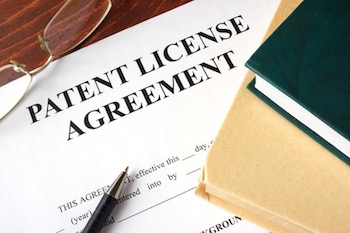The “licence” given by the owner of a patent to another person or firm is the legally accepted way to exploit invention. Use of a patented invention without the license will be deemed an infringement on the patent rights of the owner. Patent owner, for allowing the use of the invention, receives a royalty. In some countries, there are legal provisions for compulsory licensing. In such cases, under certain conditions, the law empowers a court to issue a compulsory licence and also stipulate the payment invoked, etc.
In India, an obligation is imposed on a patentee to work the patent in India on a commercial scale and to the fullest extent. The patent may be worked by the patentee himself or through licensees. Failure to fulfil this obligation will entail in the granting of compulsory licenses or the revocation of the patent itself.
Compulsory Licenses
At any time after the expiration of three years from the date of the sealing of a patent, any person may make an application to the Controller alleging that the public interest has not been served by patented invention, the patented invention is not available to the public at a reasonable price and seeking the grant of a compulsory licence to work the patented invention.
Sec. 82 – Sec. 98 of the Patents Act, 1970 deals with the circumstances and the grounds under which compulsory licenses of different kinds may be granted or the patent revoked for non-working. The object of these provisions is to prevent the “abuse of monopoly” granted by the patent. a
A compulsory license will be granted over a patent by the Controller if any of the following conditions are satisfied. [Sec. 84(1)]:
- The reasonable requirements of the public have not been satisfied;
- The patented invention is not available to the public at a reasonably affordable price; or
- That the patented invention is not worked in the territory of India.
For more information on Patent Licensing please Contact Us.

